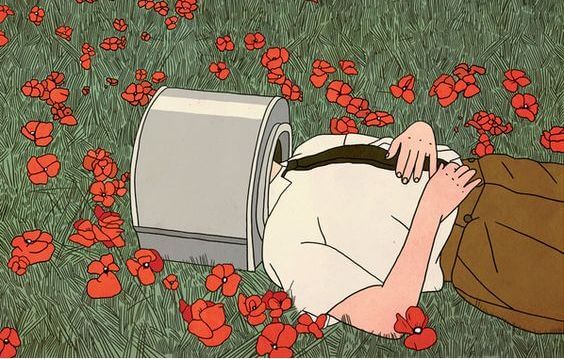"Seneca's Prozac:" For Those Who Don't Want to Suffer Anymore

Seneca’s Prozac is a “book drug” that uses a philosophical-psychological perspective to remind us that we’ve never before been so materially rich and spiritually poor.
We can find proof of this in the increasing consumption of drugs like Prozac or Tranquimazin, which have become inseparable companions for millions of people.
There are still many who worry that they won’t have them on hand. They don’t realize that, instead of eliminating their suffering, all they’re doing is simply calming the symptoms. However, there are those who believe that medication is not the solution.
Clay Newman’s book is addressed to these people. It is inspired by the illustrative quotes of Seneca, senator of the Roman Empire during the governments of Tiberius, Caligula, Claudius and Nero. In its pages we can find the beliefs of a Stoic philosopher and a dose of the wisdom we need to learn to be happy.
The source of our suffering usually comes from the belief that our way of seeing life is the only way and that those who see things differently are wrong. In fact, we tend to surround ourselves with people who think exactly like us, believing that these are the only people who make sense.
When our beliefs are challenged by others or by circumstances, we enter into a psychological discomfort that causes suffering.
“The purpose of your life consists in learning to be happy and to be at peace with yourself. For this, you have to love life exactly the way it is.”
-Clay Newman
Why don’t we question our way of thinking?
As Seneca believed, ignorance is the germ of unhappiness and the root that the rest of our conflicts grow from. There isn’t a single human being in the world who wants to suffer. Naturally, people want to be happy. However, we generally have no idea how to achieve it.
The most common lies are the ones we tell ourselves. Instead of questioning our beliefs and initiating a process of personal change, most of us are anchored to victimhood. We’re tied to indignation, impotence, or resignation.
Let’s stop looking the other way. Self-deception is a deficit of honesty. Honesty may be very painful at first, but it’s also very liberating. After all, it allows us to face the truth about who we are and how we related to our inner world.

“What you want isn’t important in life. Your tragedy is that you always want more than what you have.”
-Clay Newman
The only thing that keeps you from being happy is yourself
Seneca and his Stoic philosophy postulated that we can achieve freedom and tranquility only by renouncing material comforts and external fortune, and instead dedicate our life to the principles of reason and virtue. Eastern philosophy shares this philosophy of life, and it is now also used in modern psychological treatments.
Our beliefs are connected to our emotional reactions. In turn, they lead us to suffer and come into conflict with ourselves. Ultimately, we are the cause of our own harm. Repressed pain can make us susceptible and belligerent. Choosing to see ourselves as victims will prevent us from understanding the cause of suffering. After all, suffering is not about the stimulus, but about how we react to it.
In reality, we’re the only ones capable of disturbing ourselves. We are and will be the cause of our own suffering. Others can physically harm us. However, on a spiritual plane, only we have the power to harm ourselves.
Despite feeling free in our own mind, this illusory war causes a series of emotions within us. These include guilt, resentment, hatred, punishment and even a desire for revenge.

These emotions are the result of excessive over-interpretation. They are subjective and involve the distortion of facts and emotions that happened in the past. However, past events do condition your network of relationships in the present. This prevents you from moving forward into the future, revealing a lack of forgiveness.
Forgiveness develops by releasing ourselves from the pain we cause ourselves by now knowing how to interact in a more productive, constructive and harmonious way.
“The best think you can do for humanity is to be happy and learn to be at peace with yourself.”
-Seneca
This text is provided for informational purposes only and does not replace consultation with a professional. If in doubt, consult your specialist.








